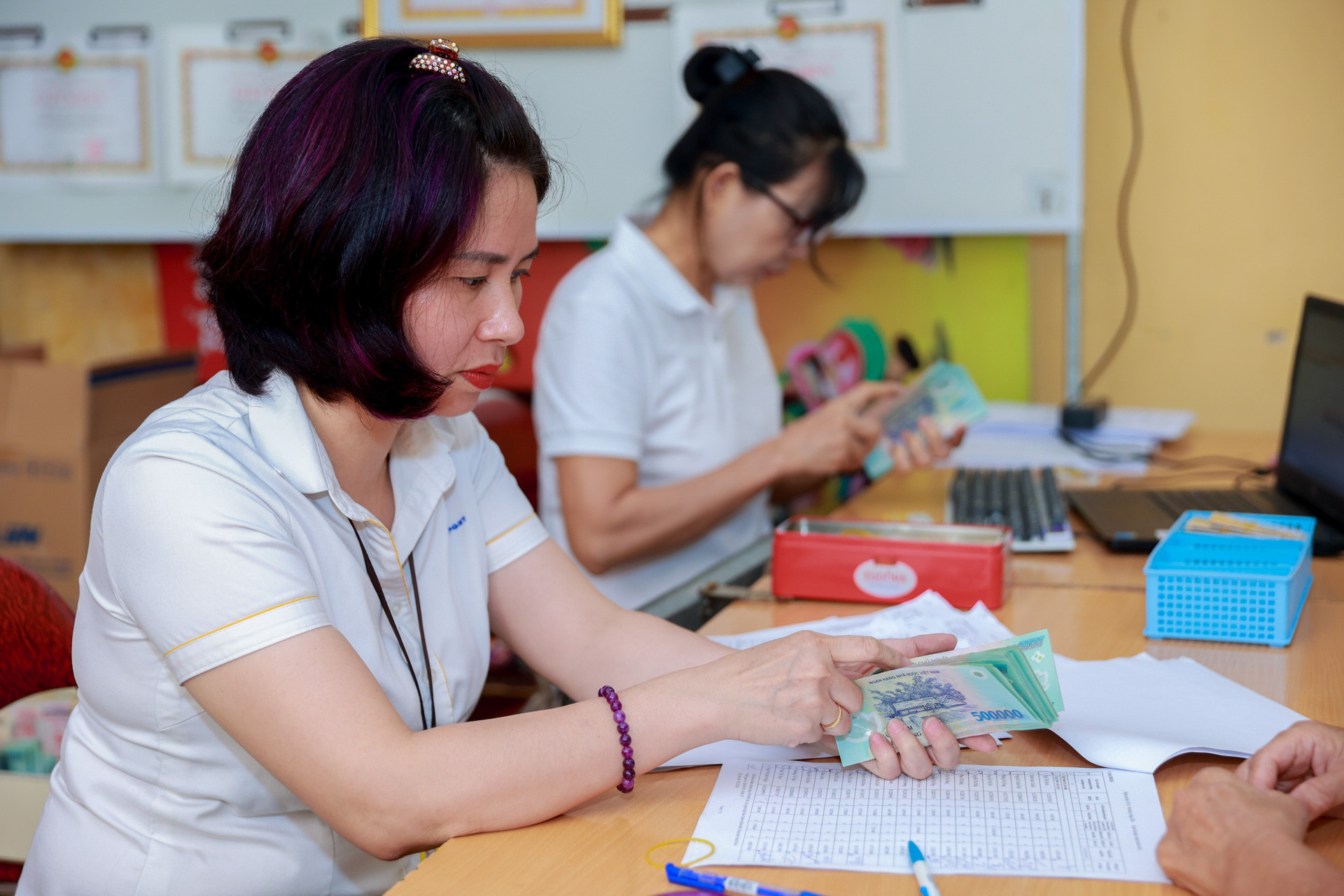Freelance workers over 40 years old who participate in voluntary social insurance (SI) can still qualify for a monthly pension upon reaching retirement age.
Joining social insurance at 45 is not too late
Ms. Le Thi Ha (43 years old, from Binh Duong) worked as a factory worker at a food production company in Tan Binh District, Ho Chi Minh City, for 10 years. In 2008, after her family relocated to Binh Duong, she withdrew her social insurance in one lump sum.
After leaving her company job and transitioning to freelance work, Ms. Ha, noticing her family’s economic stability, expressed a desire to join voluntary social insurance to secure a pension for old age.
However, she is concerned about whether her age would allow her to meet the minimum time required for retirement benefits.
"Through my research, I learned that I could participate in voluntary SI, but being older, I worry about not having enough time to meet the regulations to receive a pension when I grow old," Ms. Ha shared.

According to Vietnam Social Insurance (VSI), the 2024 Social Insurance Law, effective from July 1, 2025, stipulates that all Vietnamese citizens aged 15 and older who are not eligible for compulsory SI can join voluntary SI. Monthly voluntary SI contributions are 22% of the income level chosen by the participant.
Participants in voluntary SI receive government subsidies based on a percentage of the monthly contribution, calculated against the rural poverty standard, specifically: 30% for participants from poor households, 25% for those from near-poor households, and 10% for others.
If a participant reaches retirement age but has less than 10 years (120 months) of contributions, they can make a one-time payment for the remaining years to complete 20 years and qualify for a pension.
Participants in voluntary SI are eligible for pensions upon meeting the age requirements stipulated by the 2019 Labor Code.
From 2021, the retirement age for women increases by 4 months annually, and for men, by 3 months annually, until 2035, when it reaches 60 years for women and 62 years for men.
Under the current Social Insurance Law, retirees must have at least 20 years of contributions. However, starting July 1, 2025, when the 2024 Social Insurance Law takes effect, individuals need only 15 years of contributions to qualify for a pension.
Thus, like compulsory SI, individuals who join voluntary SI at 45 can still meet the conditions to receive a pension.
Unlike compulsory SI, which requires monthly payments, voluntary SI participants can choose from the following payment methods: Monthly, Every 3 months, Every 6 months, Annually, or A one-time payment for multiple future years (up to 5 years at a time).
Pension amount depends on contributions
Regarding the monthly pension amount, a representative from the Social Insurance Department of the Ministry of Labor, Invalids, and Social Affairs explained that:
For women, the pension equals 45% of the average monthly income used as the SI contribution base for 15 years of contributions. Each additional year adds 2%, up to a maximum of 75%.
For men, the pension equals 40% of the average monthly income for 15 years of contributions. Each additional year adds 1%.
From the 20th year onward, the rate is 45%, increasing by 2% annually until reaching the maximum of 75%.
Thus, men receive a 40% pension rate for 15 years of contributions, while women receive 45%.
Labor and wage experts note that while men receive a lower pension rate than women for the same 15 years of contributions, reducing the contribution period from 20 to 15 years under the 2024 Social Insurance Law provides more opportunities for workers, especially freelancers, to qualify for monthly pensions. Pension amounts are adjusted according to the consumer price index.
Once a pension is granted, the Social Insurance Fund covers the health insurance premiums for the retiree, contributing to better living conditions in old age.
The monthly pension amount depends on the chosen income level and contribution duration. Participants can decide their payment level and duration to align with their financial circumstances and future retirement plans.
Vu Diep